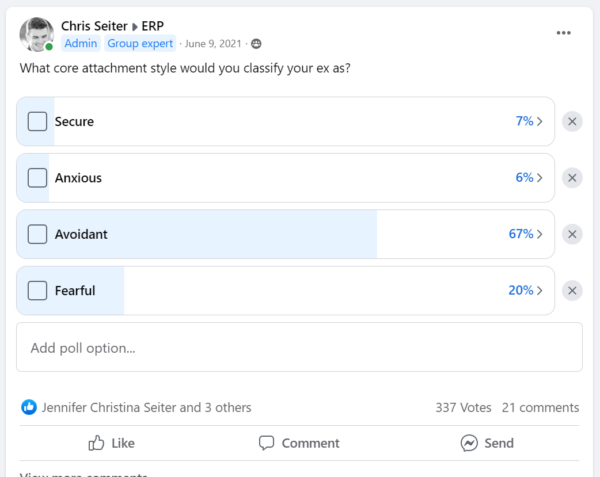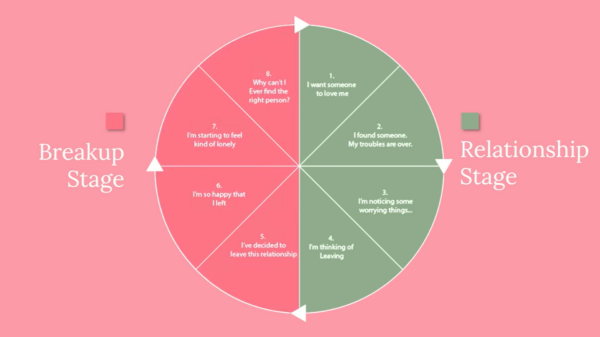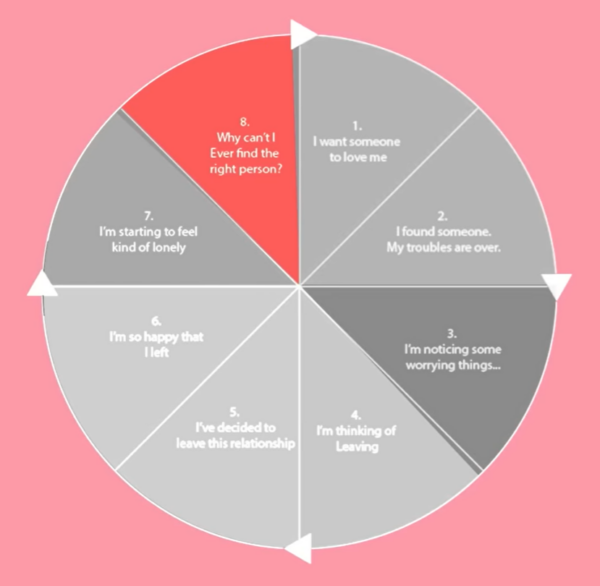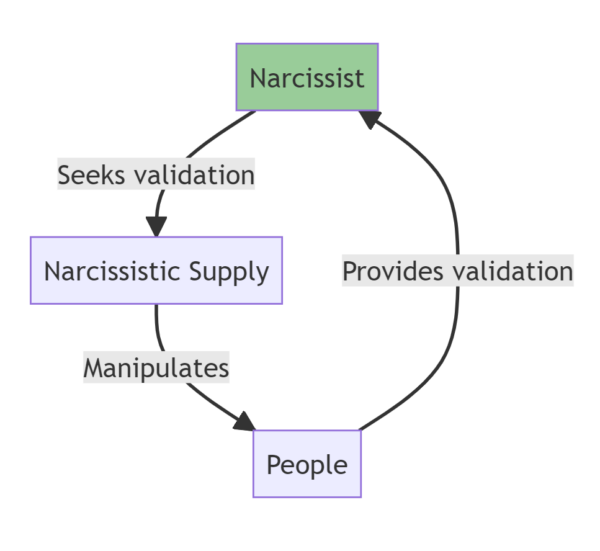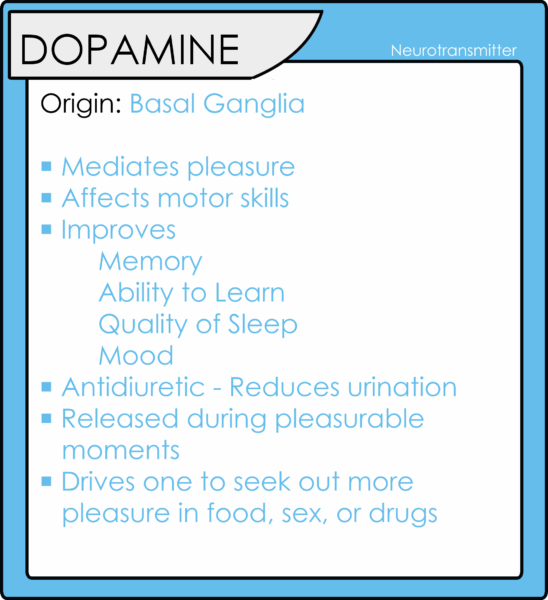I want to take an in-depth look at why your ex compliments you after a breakup.
Ultimately I think it boils down to five reasons.
- They are hitting the nostalgic reverie phase of the breakup
- They are comparing you to other people (and it’s not going well for them)
- Cognitive dissonance is kicking in
- Reinforcement theory is rearing it’s head
- The dopamine reward system is getting triggered
We’ll talk about these five reasons in a moment but I also wanted to assure you that I’m not going to stop at just explaining the “WHY.” At the end of this discussion I’m also going to dive into what you should do if an ex compliments you.
Sound good?
Let’s get started!

What Are Your Chances of Getting Your Ex Boyfriend Back?
Take the quizReason #1: They Are Hitting That Nostalgic Reverie
I’ve consistently emphasized that many of the exes I’ve studied at Ex-Boyfriend Recovery exhibit dismissive avoidant tendencies.
Typically, these individuals possess a core wound that makes them prioritize their independence. Consequently, when they perceive a threat to this independence within a relationship, their avoidant behaviors manifest.
Interestingly, these dismissive avoidants often find themselves in a cyclical pattern I refer to as the “death wheel,” consisting of eight stages:
- They yearn for someone to love them.
- Upon finding someone, they convince themselves that their problems are resolved—this is the honeymoon phase.
- They begin to observe alarming dynamics in the relationship.
- Often, these concerns arise when they feel their independence is at risk.
- This fear pushes them to contemplate ending the relationship.
- Subsequently, they do end it, entering a “separation elation” phase, cherishing the regained independence.
- However, the joy is short-lived as they soon confront feelings of loneliness; they never truly desired solitude.
- Depression ensues, possibly causing them to restart the cycle, either with a new individual or revisiting the former partner.
What piqued my interest was that in researching for a video I created years ago on strategies to make an avoidant ex yearn for you.
The prevailing insight was that the most effective way is to grant them ample space.
This distance allows them to navigate the “separation elation” in the sixth stage of the death wheel and progress to the subsequent stages, marked by introspection and regret.
It’s in this phase that they often reminisce about the significant moments of the relationship. Consequently, after prolonged periods of silence, they might spontaneously reach out.
This gesture is primarily driven by heightened nostalgic reverie—recollections of happier times—especially if they’re experiencing personal challenges. They might view you as a “phantom ex,” a concept I’ve elaborated on previously.
The crux of the “phantom ex” in this context is a paradoxical desire: they seek love and companionship, yet shy away from commitment.
Hence, they might oscillate between commitments or, more commonly, admire someone from a distance. If an ex lauds you from afar, it’s comfortable for them. Primarily, this act stems from the nostalgic reverie phase of the death wheel.
Reason #2: Comparison with Current Relationships:
Suppose an ex has embarked on a new relationship or finds themselves comparing you with their potential partners.
In that case, this might lead them to a revelation: perhaps they made an error in letting you go.
Such introspection might prompt them to compliment the distinct and positive attributes of your personality or appearance, especially if they’ve come to appreciate those aspects more post-breakup.

What Are Your Chances of Getting Your Ex Boyfriend Back?
Take the quizI discussed in yesterday’s article the concept of social comparison, noting there are primarily two kinds:
- Upward comparisons, where an individual perceives someone as superior or in a better position than themselves. This usually results in admiration. The yearning for what seems unattainable or “better” often plays out here.
- Downward comparisons, where an individual sees themselves as superior to another. Instead of admiration, there’s often a sense of pity or even condescension.
In the context we’re exploring, it’s the upward comparisons that come into play.
Your ex might have ended things, thinking they’d find something better elsewhere. But upon reflection, they could realize the reality didn’t quite match their expectations.
Recognizing that they might have taken your relationship and the moments shared with you for granted, they may begin to idealize you, positioning you on a metaphorical pedestal.
This newfound appreciation can lead to them making upward comparisons, viewing you in an admirable light. Consequently, their compliments might be driven not only by latent guilt regarding the breakup’s aftermath but also by a newfound respect, rooted in the upward comparison dynamics.
Reason #3: Cognitive Dissonance Kicks In:
Cognitive dissonance refers to the mental discomfort experienced by an individual who holds two or more contradictory beliefs, values, or attitudes simultaneously. This discomfort often motivates people to resolve the inconsistency to restore mental equilibrium.
The Relationship Context
In the context of relationships, breakups can be messy and emotionally charged. When a relationship ends, especially if the decision was difficult or unilateral, the individual might grapple with conflicting feelings:
- Belief 1: “I made the right choice by ending the relationship.”
- Belief 2: “I caused pain to someone I once cared deeply for.”
These conflicting feelings can create a mental tug-of-war. How can someone believe they made the right choice while simultaneously feeling guilt or sorrow about causing pain?
Compliments as a Resolution Mechanism
Offering compliments can serve as a mechanism to reduce this dissonance:
- Acknowledgment of Value: By complimenting the ex-partner, the individual acknowledges the value and worth of the ex. This can offset some of the guilt or negative feelings associated with ending the relationship.
- Justifying the Decision: Recognizing and verbalizing the positive attributes of the ex can help the individual frame their decision to break up in a more palatable light. For instance, they might reason, “Yes, they are a great person with many admirable qualities, but the relationship still wasn’t right for me.”
- Restoring Self-Perception: Many people like to view themselves as kind, rational, and fair. By complimenting the ex, they can maintain this positive self-image, telling themselves that they are recognizing the good in the ex despite the breakup.
- Easing Transition: The cognitive tension might also arise from the shift in roles—from being partners to exes. Complimenting can smooth this transition, offering a bridge between past intimacy and current distance.
Potential Pitfalls
While offering compliments might reduce cognitive dissonance for the one giving them, it’s crucial to be aware of the potential repercussions:
- Mixed Signals: The receiver might interpret these compliments as a sign of lingering feelings or a desire to reconcile, potentially leading to confusion or further emotional turmoil.
- Overcompensation: In trying to resolve their inner conflict, an individual might overcompensate with excessive or insincere compliments, which can come off as inauthentic and further complicate interpersonal dynamics.
Understanding cognitive dissonance and its manifestations can provide valuable insights into post-breakup behaviors. It underscores the complex nature of human emotions and decision-making, emphasizing the need for self-awareness and open communication.
Reason #4: Reinforcement Theory:
This concept is intriguing, and for reasons that might be somewhat unsettling.
Here’s the premise: past behaviors that have been rewarded tend to be repeated.
There’s a memorable “Big Bang Theory” episode that encapsulates this idea.
Spoiler Alert
The episode delves into positive reinforcement, where Sheldon, one of the main characters, attempts to condition Penny’s behavior.
He withholds candy when she behaves in a manner he dislikes but rewards her with candy when she acts as he prefers. All the while, Penny remains oblivious to Sheldon’s experiment. This approach reinforces the behaviors Sheldon finds favorable.
Relating this to the dynamics with an ex: if in the past, complimenting you resulted in positive reactions – be it gaining attention, resolving conflicts, or even physical intimacy – they might, consciously or unconsciously, revert to these compliments as a tried-and-true tactic.
The unsettling aspect emerges when one considers how this behavior aligns with the tactics of narcissists seeking their “supply.”
For those unfamiliar, I often discuss the notion of the “Narcissist Supply Rolodex.”

What Are Your Chances of Getting Your Ex Boyfriend Back?
Take the quizIt’s essentially the narcissist’s list of people they turn to when in need of attention. This attention can be physical, emotional, or sometimes simply born from boredom.
However, they perceive individuals not as fellow humans but as mere sources of attention, or “supply.”
Expert manipulators, narcissists quickly discern the strategies that make people cater to their whims. If they’ve determined that complimenting you yields desired results (like you acceding to their every request), then especially with narcissistic exes, they might employ compliments manipulatively to get something from you. It’s crucial to be vigilant about such tendencies.
Reason #5: Dopamine Reward System:
The dopamine reward system refers to a network of neural pathways in the brain primarily responsible for motivation, pleasure, and reinforcement. Dopamine is a neurotransmitter—a chemical messenger—that plays a crucial role in our experience of pleasure and reward.
- Dopamine Release: When we engage in activities that are pleasurable or rewarding, dopamine is released. This release results in feelings of euphoria, pleasure, and satisfaction.
- Reinforcement Learning: The system also reinforces the desire to repeat behaviors that lead to this pleasurable release, forming the basis of many learned behaviors and habits.
Compliments and Dopamine
- Affirmation of Social Bonds: Humans are inherently social creatures, and our evolutionary history emphasizes the importance of social bonds. Positive social interactions, such as giving or receiving compliments, can trigger the dopamine reward system because they reaffirm social connections and our place within a group or dyad.
- Self-Esteem and Recognition: Complimenting someone else can also be a reflection of the giver’s values and judgments. By recognizing and appreciating qualities in others, the giver can affirm their own standards and values, leading to a sense of self-validation. This self-validation can activate the reward centers in the brain.
- Altruism and the “Helper’s High”: Acts of kindness, including verbal affirmations like compliments, can result in what’s often termed a “helper’s high.” This is a state of euphoria that some people experience after performing a good deed or act of kindness. It’s thought that dopamine plays a significant role in this sensation.
The Context of Ex-Partners
When it comes to ex-partners:
- Revisiting Shared Bonds: Complimenting an ex can momentarily revisit the shared bond they once had, offering a brief emotional reprieve or connection. This can stimulate the dopamine system, providing a momentary feeling of contentment or pleasure.
- Reinforcement of Positive Self-Image: For the person giving the compliment, acknowledging the positive traits of their ex can help them maintain a positive self-image, especially if they are grappling with guilt or confusion post-breakup. This act can be a way of telling themselves, “I recognize the good in them; hence, I’m a fair and kind person.” This positive self-affirmation can trigger the release of dopamine.
- Positive Feedback Loop: If complimenting an ex leads to a positive response, such as gratitude or reciprocation, it can reinforce the behavior. The positive feedback can further stimulate the reward system, creating a loop where the individual might be more inclined to give compliments in the future.
What To Do When An Ex Compliments You
Alright, let’s delve into how to handle compliments from an ex.
The appropriate response largely hinges on whether you’re currently observing the “no contact” rule. At Ex-Boyfriend Recovery, we’re renowned for our Value Ladder Framework.
If you aren’t acquainted with it, I’d recommend examining this accompanying graphic.
This visual aid illustrates the post-breakup journey, emphasizing the initiation with the “no contact” rule, followed by gradual value building through various communication channels.
The “no contact” rule is foundational, and its guidelines are stringent.
If your ex praises you during this “no contact” phase, even if it’s precisely the kind of attention you crave, it’s imperative not to reciprocate.
However, once this period lapses and you transition into the rapport-building stage, the scenario becomes more nuanced. If your ex showers you with compliments, how should you react?
There are numerous strategies to consider, but I’m particularly inclined towards the mirroring approach coupled with gratitude.
If they initiate with a compliment, especially given our observation that many exes display dismissive-avoidant patterns, it’s a significant gesture. When reciprocating, ensure you don’t match their intensity but rather mirror it with restraint.
The Two Categories Of Compliments
It’s pivotal to differentiate between two categories of compliments:
- The generic/normal ones (Praising a choice of attire
- The intimate ones: In contrast, intimate compliments delve deeper, encompassing declarations of love, expressions of longing, or reminiscing shared intimate moments.
Responses to these should be tailored accordingly.
Normal Compliments Examples
Big Normal Compliment:
- If they say: I love your shirt so much.
- You say: Thank you so much (with a smile)
Medium Normal Compliment:

What Are Your Chances of Getting Your Ex Boyfriend Back?
Take the quiz- If they say: Your shirt is so pretty.
- You say: Thank you (with a smile)
Small Normal Compliment:
- If they say: Nice shirt
- You say: Thanks (with a smile)
Intimate Compliment Examples
- I miss you
- I love you
- I can’t stop thinking about (time you slept together)
- You turn me on so much
Typical Response:
Acknowledge but don’t escalate.
- I miss you vs. That means so much to me
- I love you vs. That makes me feel so happy
- I can’t stop thinking about that time vs. Aww you are so cute.
- You turn me on so much vs. Aww you are so cute.
